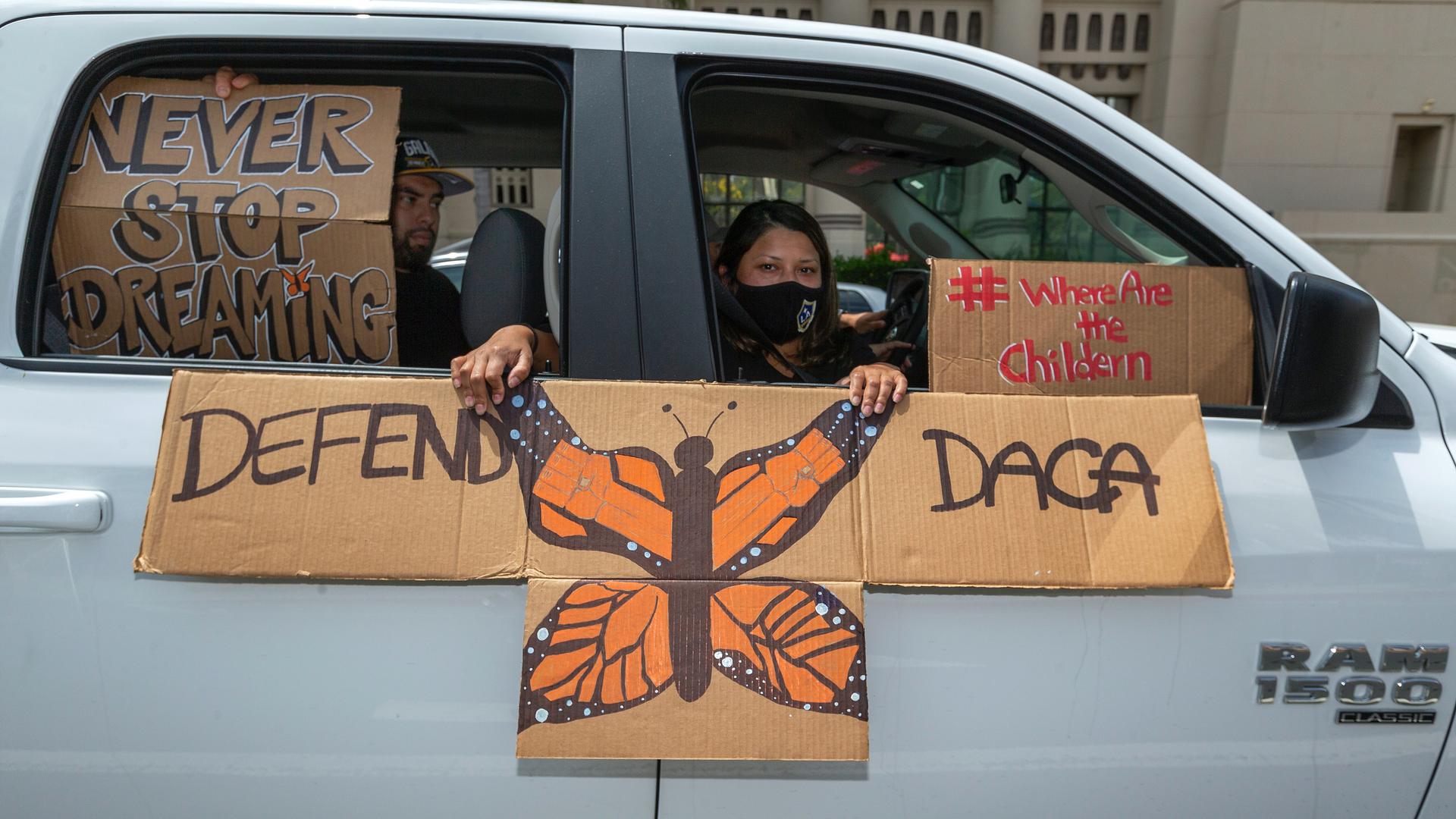Since Dip Patel turned 21, he has had to rely on temporary visas to stay in the US.
Patel was born in India but came to the country from Canada with his parents when he was 9. Previously, he had legal status through their long-term visa.
Patel, now a pharmacist in Illinois, has been hoping for a chance to apply for more permanent status through Deferred Action for Childhood Arrivals, also known as DACA.
The program started under the Obama administration by executive order in 2012, and it gives close to 700,000 undocumented young adults protections from deportation and a work permit, with individual renewals every two years.
Related: Thousands of Haitians trying to reach the US are in limbo in Tapachula in southern Mexico
But its status has been up in the air.
This past week, the Biden administration took a step to protect DACA from legal challenges, filing a DACA rule in the Federal Register, the US government’s official publication of proposed rules, notices and presidential documents. This step allows the public to submit comments about the program during a 60-day period, followed by a vetting process before it becomes a federal regulation.
The Obama administration skipped this step in 2012, according to a federal judge in Texas who ruled in July that without it, DACA is illegal. The judge’s ruling didn’t immediately impact current DACA applications and renewals, but it bars new applicants from applying.
“It’s a well-crafted, well-thought-out proposed rule.”
“It’s a well-crafted, well-thought-out proposed rule,” said Stephen Yale-Loehr about the Biden administration’s filing.
Yale-Loehr is an immigration law professor at Cornell Law School. He said the rule is “another way to bulletproof the program from litigation.”
Still, this doesn’t make DACA permanent, he said, or provide a pathway to citizenship. Only Congress can enact a permanent solution, Yale-Loehr said.
The Biden administration could have expanded eligibility and modernized DACA in this new filing, but instead, it fell short, said Karen Tumlin, an immigration attorney and founder of Justice Action Center, a nonprofit in California that brings legal resources to immigrant communities.
Related: Gen. David Petraeus: The US has a ‘moral obligation’ to help those left behind in Afghanistan
DACA had several eligibility requirements for people when it started in 2012, including having to be present in the country on the day the program was announced and not have any type of legal status in the country, Tumlin said.
“That caps the population of people who could qualify despite meeting all the other benchmarks for education and age that they came to the country,” she said.
In 2012, Patel was still dependent on his parents’ long-term visa. DACA would finally offer him some stability.
“There’s thousands of children who grow up under these various visas that actually don’t provide work authorization or protection from deportation after aging out. So, that means, in essence, those children would have been better off had they lost that status,” Patel said.
He and others who aged out of a visa status are calling themselves “Documented Dreamers,” referring to the word often associated with DACA recipients and other undocumented youth.
Related: Writer Edwidge Danticat describes how Haitians respond in times of deep crisis
The DACA proposal also includes an option to make work permits optional in a future iteration of the program, only leaving protections from deportation in place, Tumlin said. She said this rule-making step only sets the program back.
“Not everything that is done by the federal government has to go through this very cumbersome, very time-intensive process. If it did, the wheels of the government would grind to a halt.”
“Not everything that is done by the federal government has to go through this very cumbersome, very time-intensive process. If it did, the wheels of the government would grind to a halt,” she said.
But she hopes those in support of the program can submit their comments.
Now, DACA recipients and other undocumented people hope that Congress is able to agree on a pathway to citizenship for them, said Juliana Macedo do Nascimento, the state and local policy manager at United We Dream, a youth-led immigrant organization.
Related: Unaccompanied minors are among the thousands evacuated from Afghanistan
Some lawmakers have tried to include immigration reform in the federal budget bill, and have so far been unsuccessful in getting support.
Nascimento said DACA recipients like herself are tired and want a solution.
“We feel like we’re in this rollercoaster ride going from a court case to court case, and we just don’t have the stability in our lives.”
